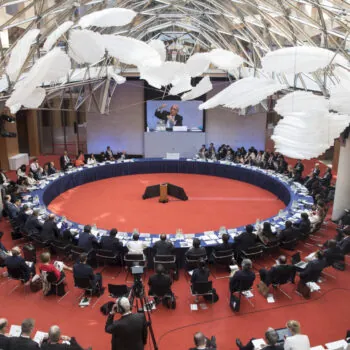David Cameron needs a win in Europe, and he hasn’t got very much time. 14 months ago the Prime Minister set out a daring but risky strategy, promising to negotiate his way to fundamental reform in Europe, and then hold a referendum on continuing British membership in a reoriented European Union. At the time this intervention was celebrated by his backbenchers, and was lauded by pundits for shooting UKIP’s fox and for wrong-footing Labour at the same time.
What a difference a year makes. Since then Cameron has found out the hard way that vetoing further European integration (as he did on the Eurozone treaty in 2011) is relatively easy compared to the much more challenging task of building alliances in Europe to get what you want. His attempts so far to open up the black box of treaty reform have been generally ignored by other European leaders. He has few definitive European allies for his approach, and many now openly question whether Cameron has the political capital to deliver on his promises of reform.
Meanwhile on the home front, his efforts at securing an EU referendum for 2017 have been frustrated in the Lords, his Eurosceptic backbenchers are becoming once again disgruntled, and the Conservatives are facing up to the risk of coming third in the European elections behind Labour and UKIP.
The European Council meeting on 20-21 March is therefore something of a last chance saloon for David Cameron’s strategy on Europe. It is the last such summit of European leaders before the European Parliament elections in May, and will be the last real opportunity to demonstrate that he is both serious and credible within Europe. Cameron badly needs to show that he can lead the European agenda on reform, and win over enough allies to make it happen.
The key agenda item for the summit is EU energy and climate policies to 2030. This should be fertile ground for UK influence. Alongside markets in digital and services, the internal energy market has been a key plank of the Conservatives’ positive reform agenda on Europe. Cameron highlighted completing the single market in energy, digital and services as the ‘driving mission’ underlying his vision for Europe, while Chancellor George Osborne recently urged “we need to stop talking about completing the Single Market in energy … and get on with it”.
The internal energy market agenda enables a story to be told about a market-based Europe doing more on trade and competitiveness, and less on the elements of Europe that Cameron would rather see repatriated. What’s more, the UK has a long tradition of leading European reform on liberalising energy markets, and winning the arguments often in the face of serious opposition from incumbent players in France and Germany.
If Cameron leads on an agenda of developing new industries in smart energy services and building the infrastructure to enable cross-border trade of power, he is likely to find allies in periphery regions such as Iberia, the Baltics and Ireland that have long complained of being frozen out of core European energy markets. An agenda of kick-starting competition and challenging the incumbent energy companies should also play well at home, where rising energy prices and the dominance of the big six has proved to be an awkward point of vulnerability for the Prime Minister.
On the climate side, the March European Council meeting will address a proposal to set a new European greenhouse gas target for 2030. Success for the UK means getting early agreement on a target of carbon cuts of at least 40% compared to 1990 levels.
This too will be a key test for Cameron’s influence – not as the voice of a hug-a-husky green leader, but as a champion for British business. The UK’s own long-term climate targets are already set in law through the Climate Change Act, which Cameron championed in opposition. The new European climate targets will not require the UK to take on new commitments beyond this existing legislation. The question of whether other EU countries take on similar targets will, however, determine whether British companies are competing on a level playing field in European markets.
Winning on this issue requires Cameron to confront countries such as Poland who have been happy to accept European finance but less willing to take on any new commitments in exchange.
Put together, these signals point to the March summit as critical for Cameron’s credibility on Europe in the run-up to the European elections, and as a test of his international standing. There will be temptation to parade a Eurosceptic narrative at the summit in order to gain back ground from UKIP. But grandstanding statements will be seen as hollow and weak, if there is no one else onside, and such an approach will win him few friends. For Cameron to win on the Europe agenda at home, he must win on his agenda within Europe as well – and he can’t do that alone.
This article was first published by British Influence.


